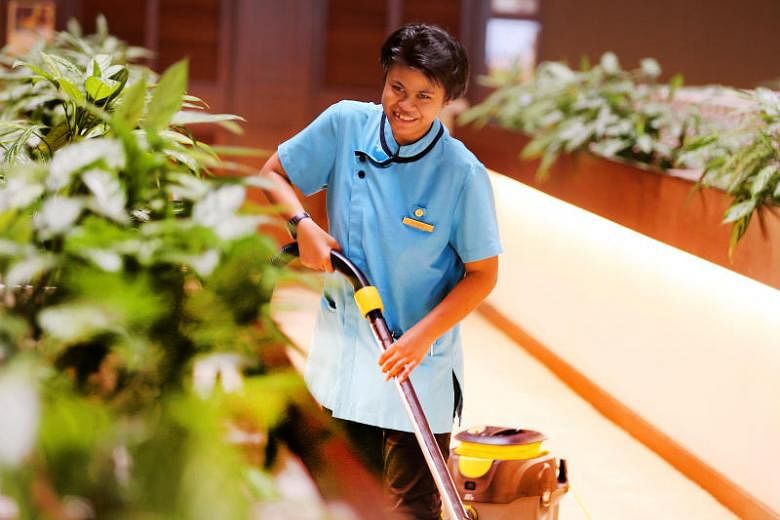SINGAPORE - Ageism and the inclusion of people with disabilities remain top issues in the workplace in Singapore, a survey of over a hundred human resource (HR) leaders for large companies and SMEs has shown.
Thirty-eight percent of respondents in the survey conducted by the cloud computing company, Workday, felt that inclusion of people with disabilities was the biggest issue in the workplace.
This was followed closely by 28 per cent who cited ageism. Eighteen per cent cited other inclusion issues like gender diversity and social diversity. .
More than half of the respondents or 58.3 per cent felt their companies did not do enough to support the disabled while one in four felt older employees faced discrimination.
The lack of facilities for people with disabilities was the main reason for the majority view.
Persons with disabilities (PWDs) comprise 0.55 per cent of the resident labour force.
The results were released at a panel discussion on Wednesday (April 18), which included top HR executives from Agoda, KPMG, LinkedIn and local Lo & Behold Group.
The panelists cited challenges of bringing these often social issues into a corporate environment. The spoke about "unconscious bias" in talent acquisition and the difficulties of justifying "business-relevance" of employee diversity.They also discussed the steps their companies had taken to improve diversity and inclusion in the workplace.
The inherent bias of people had a lot to do with a fixed mindset, said Merle Chen, chief talent officer at Lo & Behold Group, a local hospitality company.
"There are set ways of doing things here... like I've come from this industry in the past and this was the way things were done so it should work here," said Ms Chen, emphasising the need to change fixed mindsets.
The panel warned of the dangers of tokenism in trying to force diversity in hiring practices.
"By just bringing in one, this will instead lead to one is different and different is bad," said Melissa Murray Bailey, senior director, Asia-Pacific, LinkedIn.
The human resource officials felt that the two most pressing issues in the hiring and promoting of older employees were outdated skill sets and a lack of aptitude for new technologies.
This was obvious in highly technological companies like Agoda, one of the world's fastest-growing online travel booking platforms.
The bulk of the e-commerce company's nearly 4,000 staff tended to be 30 and under, according to its chief people officer, Jeffrey Lee. But he also said there was value in including older workers to better reflect customer diversity, saying that his younger team had found it difficult to appeal to customers with families, an important demographic in the travel industry.
Mr Lee said valuable older employees with outdated skills should be given opportunities to learn as they work. He mentioned SkillsFuture as a useful initiative.
The survey findings also showed that large companies may find age discrimination to be more of an issue as compared to SMEs .
"The larger an organisation, the more complex its people processes are... it's easier for issues such as ageism to creep in and become amplified... hence the need to actively invest time, resources and technology to improve diversity and inclusion issues," said David Hope, President APAC, Workday.

